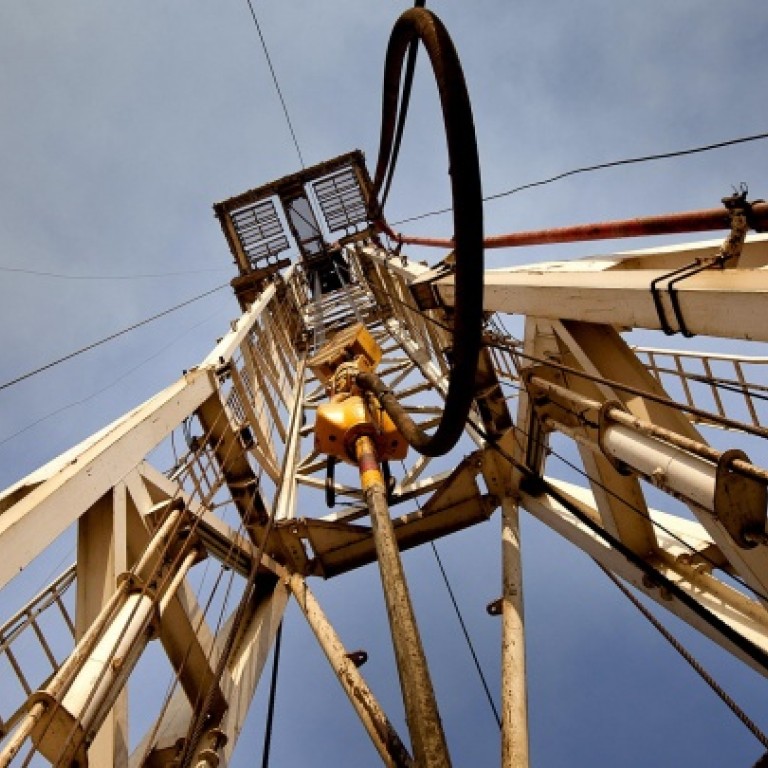
Beijing 'to increase reliance on Middle East oil'
China's dependence on Middle Eastern oil will increase in the coming years, while American dependence will decline, said speakers at the United States-China Economic and Security Review Commission hearing in Washington last week.

"China is expanding its economic, diplomatic, political, and security presence in the Middle East," US Senator James Talent told the commission, which advises the US Congress on Sino-US relations. "That engagement is of particular importance to the US, given our country's interests and investments in that part of the world," Talent said.
In 2011, the mainland imported 2.9 million barrels a day of Middle Eastern oil, which accounted for 60 per cent of its oil imports. The US imported 2.5 million barrels a day, accounting for 26 per cent of its oil imports, said Erica Downs, fellow of the John Thornton China Centre, based in Washington and Beijing.
The International Energy Agency projects that by 2035, US oil imports from the Middle East will fall to 100,000 barrels a day, or 3 per cent of US oil imports, as a result of increasing oil production and decreasing demand. In contrast, China's oil imports from the Middle East are projected to grow to 6.7 million barrels a day, accounting for 54 per cent of Chinese oil imports over the same period.
Downs said: "Oil security concerns might compel Beijing to play a larger role in defusing the threat to the flow of oil from the Gulf. This might entail Beijing communicating to Iran that it would regard the disruption of oil exports as a threat to China's vital interests, similar to the public warning then-Premier Wen Jiabao issued in Qatar in 2012."
The boom in oil and natural gas production in North America may provide Washington with more leverage over China's national oil companies in Iran, Downs said, pointing out that North America was now the centre of global mergers and acquisitions in oil and natural gas.
In 2011, 60 per cent of upstream mergers and acquisitions worldwide were in North America, and Chinese oil executives had indicated continued interest in acquiring oil assets in North America. "The more Chinese oil companies are invested in the US, the more likely they are to think twice about doing business in Iran," Downs said.
Bryant Edwards, a partner in Latham & Watkins, a US law firm, said Chinese strategy in the Middle East was mainly economic. "That would seem to be borne out by the fact that China invests in both Israel and in Palestine, and in both Saudi Arabia and Iran," he said.
China's imports from the Middle East (mainly petroleum and gas) grew from US$3.8 billion in 1999 to US$160 billion in 2012, said Dawn Murphy, a research fellow at Princeton University. Its product exports to the Middle East have dramatically increased from US$6.47 billion in 1999 to US$121 billion in 2012, she said.
Yitzhak Shichor, professor emeritus at the Hebrew University of Jerusalem, said: "While the Middle East is still marginal to China's core interests, there is no doubt that China's profile in the Middle East, economic, military and political, is unprecedented."
Washington's refusal to sell missiles to Saudi Arabia had opened the door to a Sino-Saudi missile deal, while the US refusal to sell weapons to Turkey helped shape the Sino-Turkish strategic partnership and Chinese participation in military exercises with Turkey, a NATO member, Shichor said. The withdrawal of US and Western oil companies from regions of unrest and conflict in Middle Eastern countries such as Sudan, Iraq and Libya paved the way for the entry of Chinese oil companies in these countries.
In recent years, China had become more willing to challenge the US in the region, Murphy said. For example, although China abstained on the United Nations Security Council vote that resulted in Nato intervention in Libya in 2011, it criticised the US and Nato for their military action; and despite heavy US pressure, China cast three security council vetoes on the Syrian issue in 2011 and 2012.

